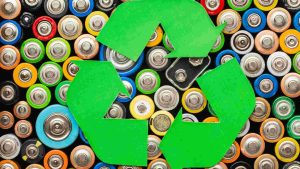![]()
Plastic pollution is a universal environmental challenge that needs concerted efforts to mitigate its impact. One significant contributor to this issue is the import and mismanagement of plastic scrap. Countries that import plastic scrap often face challenges in adequately processing and disposing of this material, leading to environmental pollution. This blog explores strategies to reduce plastic scrap import-related pollution, focusing on sustainable waste management practices, regulatory frameworks, and international cooperation.
Strengthening Domestic Recycling Infrastructure
One of the primary strategies for mitigating import-related pollution from plastic scrap is to invest in and strengthen domestic recycling infrastructure. Countries should prioritise the development of advanced recycling facilities capable of efficiently processing various types of plastic waste. This involves incorporating state-of-the-art sorting technologies and recycling equipment and promoting research into innovative recycling methods.
Implementing Extended Producer Responsibility (EPR)
Governments can implement Extended Producer Responsibility (EPR) programs to address the issue at its source. EPR puts the onus on manufacturers to manage the complete life cycle of their products, including proper disposal and recycling. By holding producers responsible for the environmental impact of their products, EPR encourages the development of sustainable packaging and promotes the use of easily recyclable materials, thereby reducing the amount of plastic waste generated.
Regulatory Measures and Enforcement
Stringent regulations are crucial for curbing plastic scrap import-related pollution. Governments should enact and enforce laws that regulate the import, processing, and disposal of plastic waste. This includes setting clear standards for plastic recycling facilities, waste treatment processes, and penalties for non-compliance. Regular inspections and monitoring mechanisms can ensure that the regulations are followed, deterring illegal and environmentally harmful practices.
Promoting Circular Economy Practices
Adopting a circular economy approach is vital in addressing plastic pollution. This involves designing products with the end of their life cycle in mind, ensuring that materials can be easily recycled or reused. Governments can incentivise businesses to adopt circular economy practices through tax breaks, subsidies, or other financial incentives. By fostering a circular economy, the demand for new plastic production may decrease, reducing the reliance on plastic scrap imports.
International Cooperation and Agreements
Plastic pollution knows no borders, and effective solutions require international cooperation. Countries can collaborate to establish agreements and protocols for the responsible management of plastic waste. This may include the creation of a global framework for tracking and regulating the movement of plastic scrap, ensuring that exporting and importing nations adhere to common standards. International partnerships can also facilitate the exchange of knowledge and best practices in plastic waste management.
Investing in Research and Innovation
Investing in research and innovation is important for developing new technologies and methods for plastic waste management. Governments, private industries, and research institutions should collaborate to explore alternative materials, improved recycling techniques, and innovative solutions for repurposing plastic waste. This can lead to developing economically viable and environmentally sustainable practices that reduce the need for importing plastic scrap.
Public Awareness and Education
Raising public awareness is critical in fostering a sense of responsibility for plastic waste management. Governments should implement public education campaigns to inform citizens about the environmental impact of plastic pollution, the importance of recycling, and the consequences of improper waste disposal. Informed and environmentally conscious consumers can drive demand for sustainable products and pressure businesses to adopt eco-friendly practices.
Conclusion
Reducing plastic scrap import-related pollution requires a multifaceted approach combining regulatory measures, infrastructure investment, international collaboration, and public engagement. By implementing these strategies, countries can address the immediate challenges posed by plastic waste and contribute to a more sustainable and environmentally conscious global community. Taking action now is crucial to ensure a healthier planet for current and future generations.





